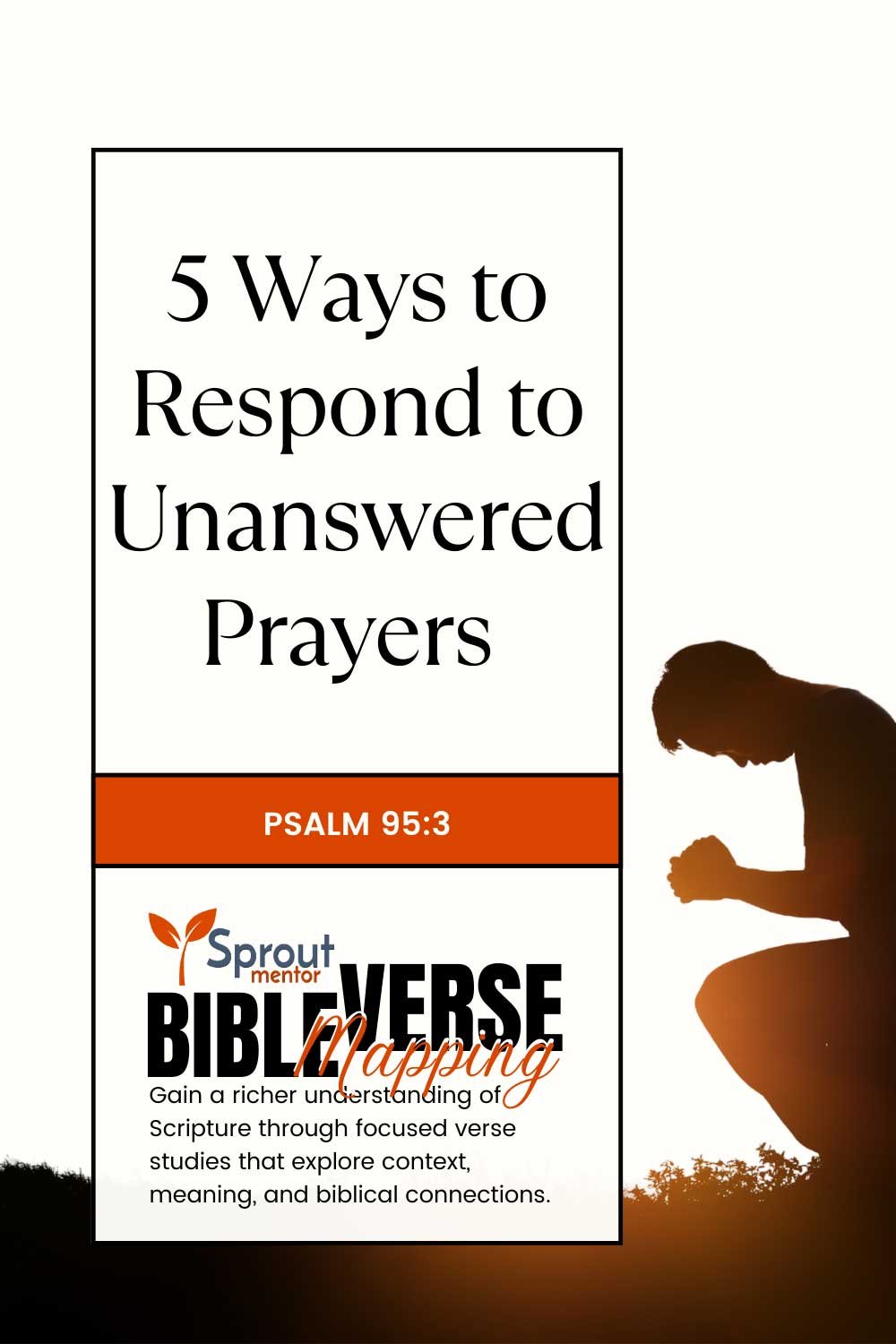5 Ways Your Prayers Can Be Stinky (Psalm 141:2)

Share This Blog Post On:
Short on time, but big on faith? We break down complex topics into easy-to-understand chunks, making the Bible accessible to everyone. Join us for answers to your Bible questions and encouragement for your daily walk with God. Click here to grow your faith, one byte at a time!
“Think of my prayer as sweet-smelling incense, and think of my lifted hands as an evening sacrifice.” (Psalm 141:2, CEV)
In our daily lives, we are accustomed to cleanliness—bathing, brushing, and sanitizing. Physical odors are rarely a concern in today’s sterile world. However, the Psalmist, in Psalm 141:2, shifts our focus to the spiritual realm, where God “smells” our prayers as sweet-smelling incense. This metaphor is reinforced in Revelation 5:8, where incense represents the prayers of the saints ascending to God. Drawing from the concept of burning incense as described in Exodus 30, here are five ways our prayers can lose their fragrance and become spiritually “stinky.”
#1 – Praying Without Heartfelt Commitment
Prayers offered out of mere ritual or convenience—without sincerity or regularity—can lose their fragrance before God. Aaron and his sons were commanded to burn incense every morning and evening as part of a perpetual covenant with God. This wasn’t an occasional act but a daily discipline, symbolizing continuous fellowship and reverence (Exodus 30:7-8).
Luke 1 recounts how Zacharias faithfully burned incense while people prayed outside, showing a deep respect for this act of worship. Similarly, God calls us to “pray without ceasing” (1 Thessalonians 5:17), cultivating a rhythm of consistent, intentional prayer. Random, occasional prayers lack the devotion God seeks and risk becoming spiritually stale.
#2 – Praying Without Spiritual Understanding
Aaron’s daily task of trimming the lamps and offering incense was a detailed, intentional process. This mirrors how our prayers must be informed by the Word of God and the guidance of the Holy Spirit. Ignorance in prayer—praying with no understanding or depth—can make our prayers ineffective and unpleasant to God.
The parable of the five foolish virgins in Matthew 25:1-13 warns us of spiritual unpreparedness. They lacked oil, symbolizing the lack of renewal in their soul (the vessels), and missed the bridegroom. Likewise, our prayers must be fueled by God’s Word (Psalm 119:105). Without this spiritual vitality, our prayers become vain repetitions and many empty words (Matthew 6:7-8).
#3 – Praying with a Self-Centered Heart
The incense used in the tabernacle was made from specific ingredients, finely beaten to release a sweet aroma. This teaches us about humility in prayer. Just as the incense had to be crushed, we must approach God with a humble, contrite heart (Psalm 51:17).
Pride disrupts the fragrance of prayer. John the Baptist expressed this truth, saying, “He must increase, but I must decrease” (John 3:30). God resists the proud but exalts the humble (James 4:6). Prayers filled with self-glorification or arrogance fail to rise as sweet incense before Him. Instead, brokenness and submission make our prayers pleasing to the Lord.
#4 – Praying Without Passion or the Spirit
Incense only releases its fragrance when exposed to fire. Similarly, our prayers need the fire of God’s Word and the Holy Spirit to ignite them. Leviticus 16:12-13 describes how the priest would take burning coals to ignite the incense, producing a smoke that filled the holy place.
Passionless prayers—offered without fervor or the Spirit’s leading—are like unlit incense, failing to reach God’s throne. James 5:16 reminds us that “the effectual fervent prayer of a righteous man avails much.” Let the Word of God and the Spirit stir your heart, ensuring your prayers rise with power and fragrance.
#5 – Praying While Harboring Sin
The incense in the tabernacle had to be freshly prepared each day, free from impurities or “strange fire” (Leviticus 10:1-2). This teaches us that unconfessed sin contaminates our prayers. God calls us to approach Him with clean hands and a pure heart (Psalm 24:3-4).
Vain repetitions or prayers filled with dead formality are like incense mixed with foreign elements—unacceptable to God. Isaiah 1:15 warns that when sin abounds, even our prayers become offensive to Him. Guard your heart as the altar of prayer, ensuring it remains free from spiritual filth, and offer prayers that reflect genuine repentance and dependence on God.
In conclusion, when offered in faith and submission, our prayers are like a sweet-smelling perfume, permeating heaven and earth. Just as incense transforms the atmosphere with its fragrance, so can our prayers create a spiritual ambiance of joy and hope. As Psalm 141:2 invites us, let our prayers ascend as incense and our hands as evening sacrifices. Don’t settle for stinky prayers—pray with sincerity, humility, passion, and purity.

Continue Reading More On:
|







